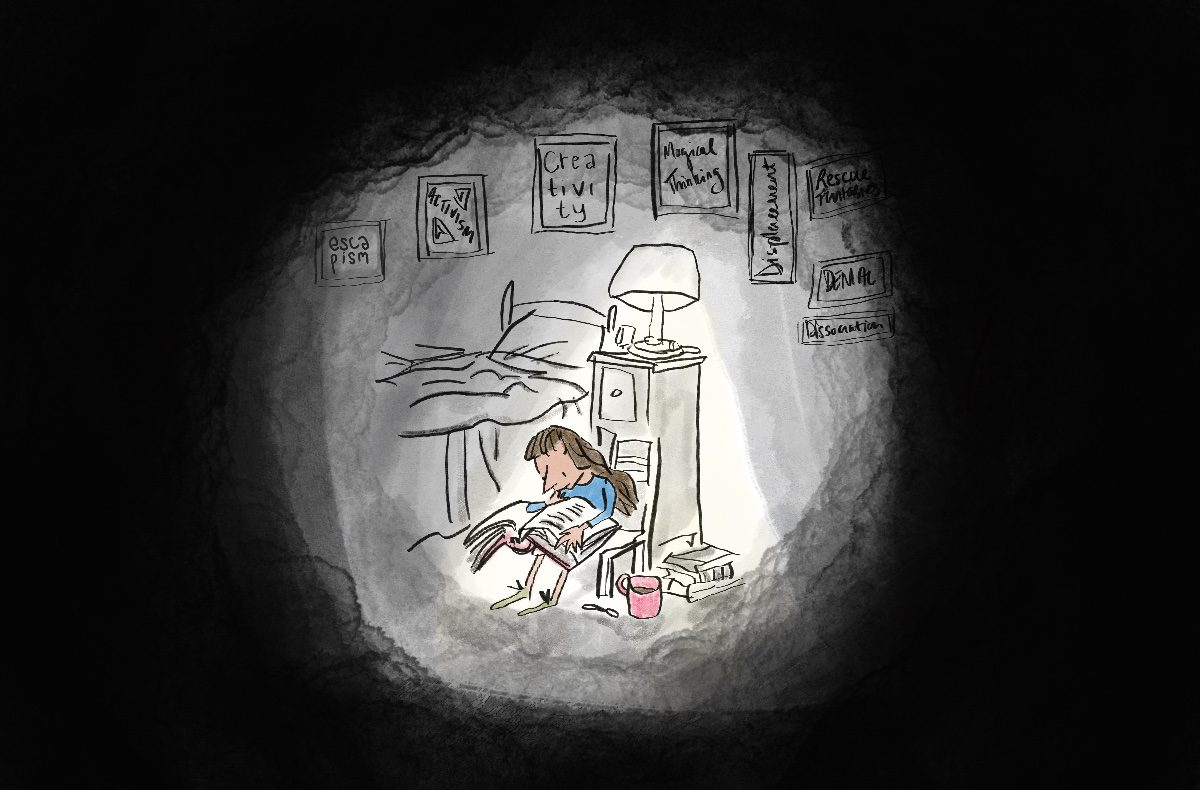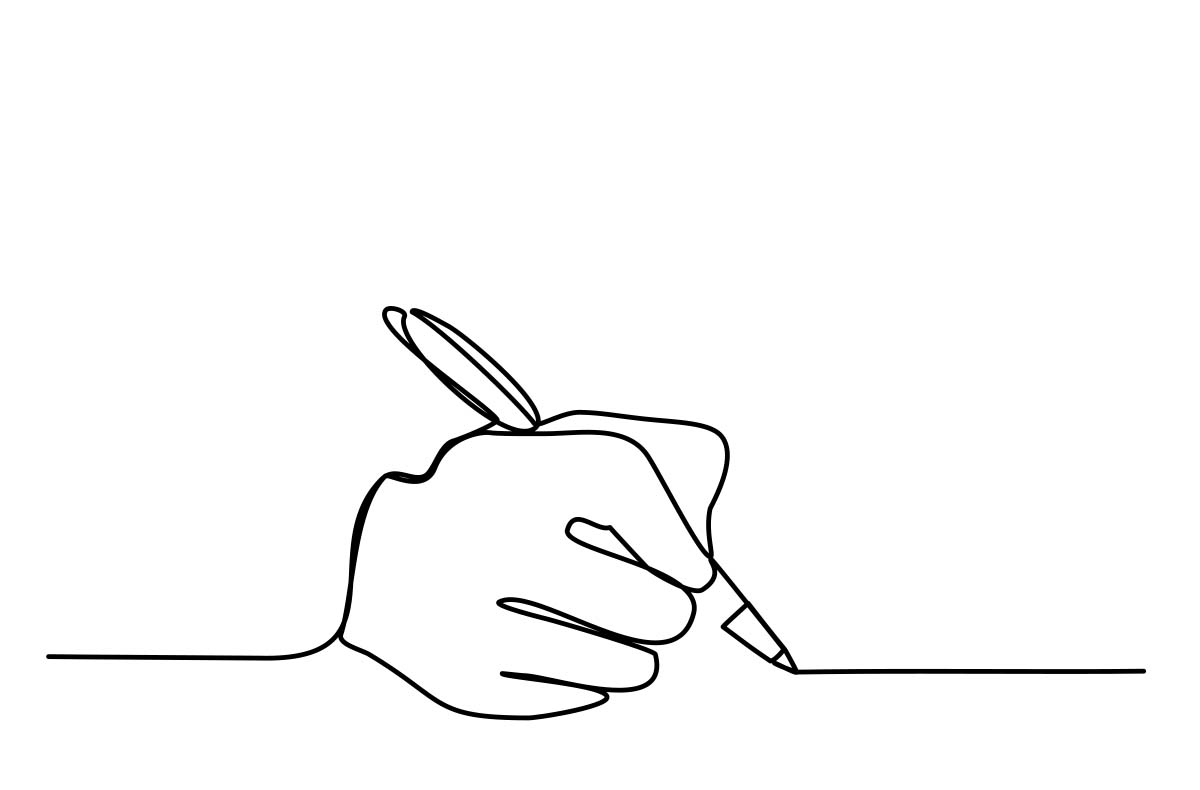
Image by Sarameeya Aree
On a normal Wednesday evening, I was winding down my day after dinner with a friend, planning on an early bedtime, since I knew I’d be very busy the next day. At the restaurant, we’d been talking about a woman we both greatly admired, and we had sung her praises. Crawling into bed, I decided to quickly Google the woman we’d been discussing.
Big mistake. My “quick Google” turned into a three-hour journey down a rabbit hole I didn’t realize was actually comparisonitis. I was, on the one hand, fascinated by this woman’s accomplishments and her lengthy, super-impressive works, but in all honesty, by the time 3 am rolled in, and I’d memorized her CV, I felt shit. Compounded by exhaustion and regret over lost sleep, I felt like a nobody, like I hadn’t achieved or done enough in my life. I had completely lost myself in the process of comparison.
I don’t believe that comparing ourselves with others is inherently harmful. It’s pretty universal, with research demonstrating that 12% of all our thoughts revolve around comparisons. As indicated by this article’s title, I believe comparisonitis is what’s really harmful. The key difference between comparison and comparisonitis? The latter involves negative judgments and attributions. While we might say, “she’s got three university degrees, and I’ve got two” while comparing, in comparisonitis mode, we assign unhelpful meaning to our comparisons: “she’s got three university degrees, and I’ve got two, so I’m not intelligent or accomplished enough.” Comparisonitis can be defined as the compulsion to compare one’s accomplishments to another’s to determine relative importance, and it’s this type of “determining” that can account for its harmful effects.
Upon reflection, I realized that comparisonitis also comes up a lot for my clients in therapy, with many believing that others cope better with struggles than they do, or don’t struggle at all. These beliefs can exacerbate an already difficult situation by adding shame, pressure, and self-criticism. After my own comparisonitis fiasco, I talked about it with friends the next day, who gently and correctly called me out on my behavior.
Thinking about this issue in relation to myself and others has allowed me to do some work on finding strategies to tackle comparisonitis. Here are some things that might help when the thief of joy kicks in:
Take Stock of Your Inner Life
Start with a check-in. What’s going on? How are you feeling during the process of comparing? Are you neutral, unfazed, and just stating the facts without any value judgment? Probably not—you’re in comparisonitis, which doesn’t feel great. So how do you really feel right now? Disappointed, ashamed, angry, even? Spell it out for yourself, and get to know those feelings for a bit. This first step may seem obvious, but it’s important to actually step outside of your thoughts and behaviors and see them for what they are. It’s usually necessary to realize that what we’re doing is hurting us before we’re able to stop.
Lead With Compassion
Before we do any work on our comparisonitis, it’s a good idea to acknowledge what’s happening in a compassionate way. Namely: don’t beat yourself up. It would have been very easy for me to talk to myself critically that Wednesday night, layering the shit feelings with more shit feelings about feeling shit. Instead, interrupt the negative thought spiral by being kind to yourself. How about saying: “What has just happened is perfectly common. I don’t feel great, so I’m going to focus on taking care of myself right now. But once I feel better, I can think of ways to avoid this happening again in the future.”
Interrupt Your Behavior
Once we’ve spoken nicely to ourselves, we can work on a behavioral exercise. Essentially: remove yourself from whatever is aiding your comparisonitis, if possible. If it’s social media, try to get off it for now. Stop scrolling. Avoid Googling. Put the phone away. If you’re able to, remove yourself from the situation, the habit, or the person, just for the moment.
Engage Logic
Next, try a cognitive exercise and ask yourself how valid your comparison really is. Does it even make sense to compare yourself on that metric? Is it realistic to compare yourself with that other person? In my case, the woman I was comparing myself to was significantly older than me, and had a lifetime of collecting accolades to show for herself. It was totally irrational to be comparing myself to her—we were very different.
Take a Bigger Picture View
Once you’ve applied logic to your thoughts, throw away the cognitive exercise. Yep, that’s right. It’s important, but only to hold in mind for a second. What’s more important is the general understanding that it just doesn’t matter where that other person is in life: what matters is the path you’re on. We’re all different. We’re all approaching life at our own pace. Society makes us think we’re in a race, but we’re absolutely not. Life should not be approached as a zero-sum game. Change the cognitive exercise into some rational affirmations such as these.
Also, remember that we are usually comparing our normal, everyday version of ourselves with someone else’s best. We’re comparing our “okay” moments with someone’s highest achievements. A Google page isn’t the same as everyday life. That’s not to say that the person behind the Google page isn’t amazing, it just means that what happens on an uneventful day will differ from even the most authentic google page.
Return to the Self
At this point, we’ve most probably done some self-validation and some challenging of our comparisonitis. The first step was getting us out of our spiral and gently reconnecting with ourselves. We can do that more deeply now in a return-to-self exercise. Think about all the things you like and appreciate about yourself—and make the list long. Who are you really to yourself? What have you achieved? What are you most proud of? What are your strengths? What are you grateful for? Then think about what you’d like to work on. What would you like to do or be in the future that’s different from where you’re at now? What is this current bout of comparisonitis trying to tell you? Do you regularly find yourself comparing when it comes to a specific topic? This can actually provide useful goal-setting information.
Switching Your Mindset from Scarcity to Abundance
Using the information gathered in the previous step, we can now attempt a switch from discouraging comparisonitis to motivating comparison. This is much easier said than done, but nevertheless is a good step to practice.
In her book, Comparisonitis: How to Stop Comparing Yourself to Others and Be Genuinely Happy, Melissa Ambrosini discusses the idea of moving from a scarcity mindset—where we’re leading with the viewpoint that others’ achievements take away from our own and highlight a lack on our part—to an abundance mindset, where we view others’ achievements as something we can achieve, too. Ask what the other person’s achievements mean to you: is this something you can work towards, too? How might they be positive role models? Viewing comparison through this empowering lens can neutralize the shitty feelings comparisonitis breeds—ideally, it might become something hopeful and inspiring instead.
Play the Long Game
Comparisonitis usually needs to be healed from the inside out. One single exercise won’t be enough to change a mindset cultivated over a lifetime, so I’d encourage you to engage in some long-term exercises to avoid chronic comparisonitis.
It helps to do some inner work around our self-worth, our beliefs about what we have and don’t have, what is possible for us to have, our general thoughts about ourselves and others, and the scripts we hold about what’s “good” and “desirable” or “bad” and “undesirable.” Chances are, those scripts have been embedded deeply into us, and we’ve never challenged them—although they’d probably benefit from a bit of challenge. Once again, this comes back to refocusing on the self, rather than lasering in on external things. It’s not only what we have, but who we are.
January is a great time to practice these exercises: we all deserve to free ourselves from the thief of joy as we embark on a fresh start. The beginning of the new year is also when many people start seeking mental health support—professional psychotherapy can be a great tool to get more familiar with yourself and your blockages to feel joy. Ultimately the greatest thing we can do for our own joy is to start looking within: because the only person who gets to live your life is you.



